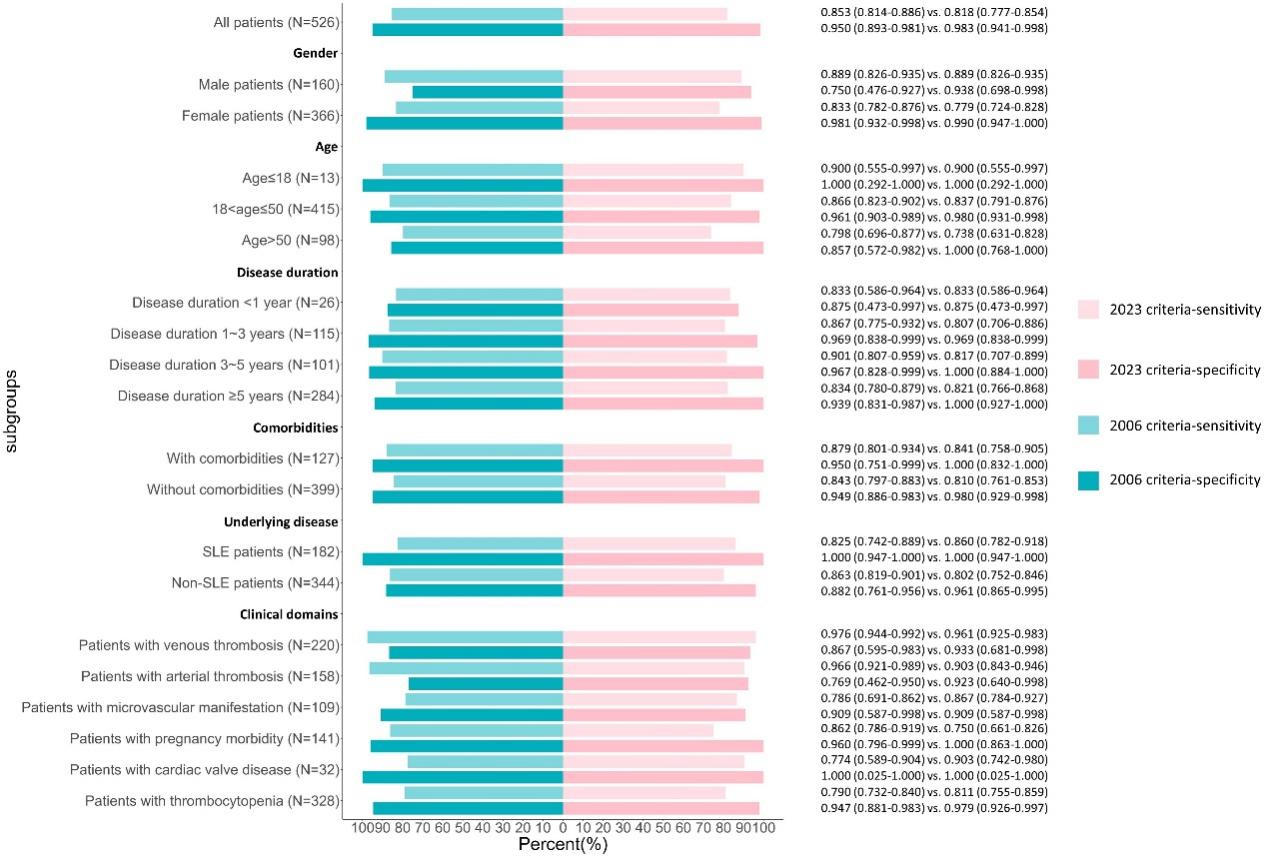Recently, the outcome of a research by a team led by Director Li Mengtao and Deputy Director Zhao Jiuliang of the Department of Rheumatology at PUMCH, in collaboration with the Department of Hematology, Obstetrics and Gynecology, and Pathology, was published as an original article in the “Journal of Thrombosis and Haemostasis” (IF: 10.4). The study validated the new 2023 classification criteria for antiphospholipid syndrome (APS) using a large cohort. Moreover, the research confirmed that compared to the 2006 criteria, the 2023 criteria exhibited higher specificity and lower sensitivity. However, the sensitivity of the 2023 criteria was improved in patients with systemic lupus erythematosus (SLE). This study was supported by the National High Level Hospital Clinical Research Funding.

APS was previously considered an acquired thrombophilia. The 2006 classification criteria required patients to have clinical manifestations of thrombosis or gestational morbidity, as well as persistently positive laboratory test results for antiphospholipid antibodies to be diagnosed with APS. Instead, the new classification criteria introduced in 2023, 17 years after the 2006 criteria, adopted a scoring system, incorporating microvascular manifestations (such as livedo reticularis, livedoid vasculopathy, APS nephropathy, alveolar hemorrhage, myocardial lesions, adrenal hemorrhage), cardiac valvular lesions (thickening and vegetations), and thrombocytopenia, thus redefining APS as an autoimmune disease with diverse clinical manifestations.

▲Validation results in the cohort and in various subsets
The multidisciplinary study, using a single-center cohort from PUMCH, further confirmed that adopting the scoring system, the 2023 classification criteria showed higher specificity and lower specificity than the 2006 criteria. However, in subsets of patients with SLE and those with microvascular manifestations, valvular manifestations, and thrombocytopenia, the sensitivity of the 2023 criteria was improved. The study proposed for the first time that factors leading to the decreased sensitivity of the 2023 criteria include the exclusion of certain microvascular manifestations (such as non-stroke central nervous system manifestations), stricter definitions of pregnancy morbidity, and the fact that thrombocytopenia alone or positivity of antiphospholipid antibody IgM alone is insufficient for an APS diagnosis. Further research will be necessary to clarify the relationship between the abovementioned clinical manifestations and antibodies with APS.
Translated by Liu Haiyan
Reviewed by Jiang Nan and Wang Yao
